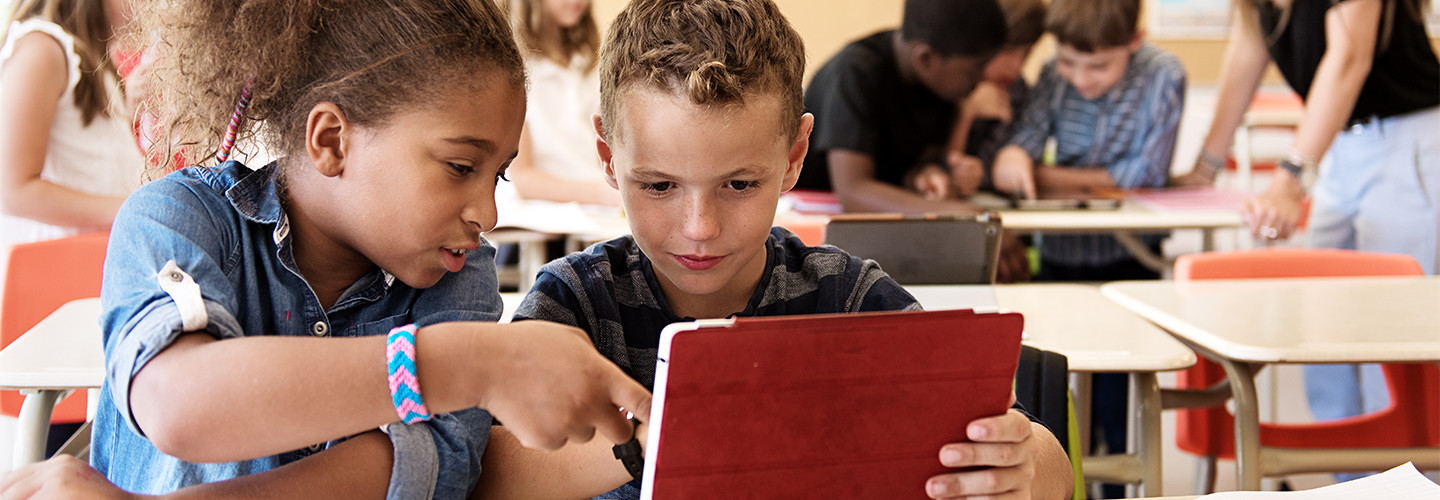Educators See Positive Impact of Mobile Devices in K–12
A new report from national education nonprofit Project Tomorrow says adding mobile devices to the classroom provides students with equity, empowerment and a better understanding of complex concepts.
The efficacy of mobile devices for education has been hotly debated from classrooms to Congress. Opponents say mobile devices create room for distraction, while proponents say they offer educators an array of new pedagogical practices.
The report, titled “Beyond Engagement” and written by Julie Evans, chief executive officer for Project Tomorrow, expands on findings from Project Tomorrow’s 2017 “Speak Up” report.
It includes input from 340,927 K-12 students and 34,833 teachers, along with librarians, administrators, parents and community members from over 10,600 public and private schools and 3,200 districts across the United States.
Drawing on the data gathered, Evans points to three key ideas to take away from the report:
- School principals value using technology for learning because of its ability to help empower learning and address the educational inequities inherent in today’s education system
- Programs that provide students with an assigned laptop, tablet or Chromebook level the playing field for students’ technology access at school. They also enhance the learning experience for those students.
- When teachers use digital content, tools and resources in the classroom, it helps students develop workplace- and college-readiness skills. Effective use of those tools also enables more equitable learning experiences at school.
Here are a few of the data points that helped her reach those conclusions.
Mobile Devices Encourage Further Classroom Equity
In her report, Evans explains that more administrators are providing students with assigned access to laptops, tablets and Chromebooks in hopes of “ensuring equity in access to technology and enhanced learning experiences.” In fact, 60 percent of school principals surveyed indicated their schools have adopted a one-to-one mobile device program (an increase of 9 percentage points from last year’s report).
With equitable access in place, principals also report mobile devices are used more effectively in core subjects. In math classes, 53 percent of principals with a one-to-one program report technology is used effectively in their school with resulting academic benefits. Only 43 percent of all principals say the same about technology use in their math classrooms.
Elicit Better Student Understanding Through Personal Devices
With more access to mobile devices, teachers can also use more digital content in their lessons, creating more opportunities to enhance student learning. As Evans explains in the report, “The teachers using digital content report higher levels of student outcomes than teachers who are not using these tools.”
For example, 51 percent of teachers who used digital animations and simulations to explain abstract concepts to students found the content helped students develop critical thinking and problem-solving skills, while only 43 percent of all teachers say that their technology use is resulting in critical-thinking development.
MORE FROM EDTECH: Check out where K–12 schools can go for personalized learning resources!
Empower Students to Seize Their Own Learning
Evans reports better access to mobile devices appears to increase student self-efficacy and create positive student mindsets about learning.
For example, when students were asked if they believed doing well in school was important to their futures, 83 percent of students with assigned laptops or Chromebooks said yes, compared to 72 percent of students who did not have assigned access to technology.
Similarly, 49 percent of students with access to mobile devices say the skills they learn in school are important to their futures, while only 39 percent of students without assigned mobile access felt the same.
In the report, Evans also says the data shows “high-school students with assigned access to a laptop or Chromebook are more likely to use those devices to personalize their learning process, stay organized with their schoolwork and leverage technology for more enhanced learning experiences than their peers with no access or only sporadic access.”
While the debate is ongoing, this report demonstrates the positive impact of mobile devices and digital content in classrooms around the nation.








